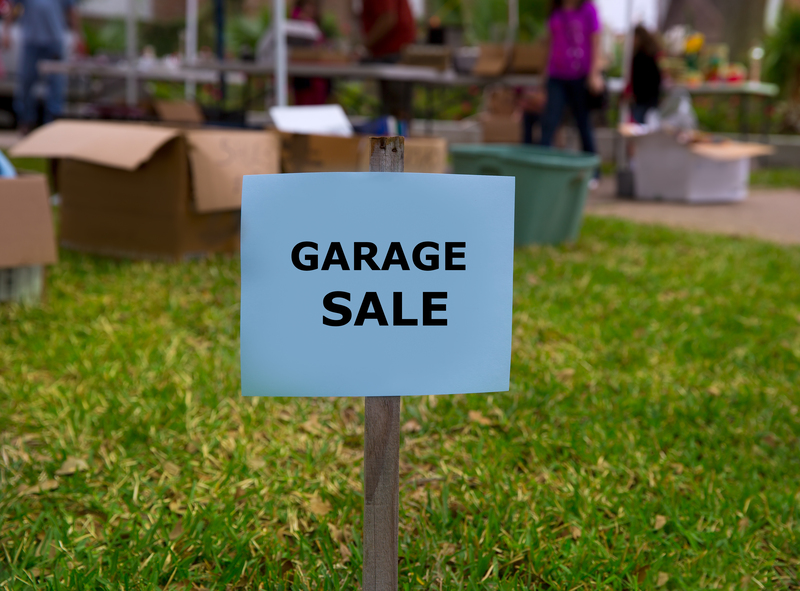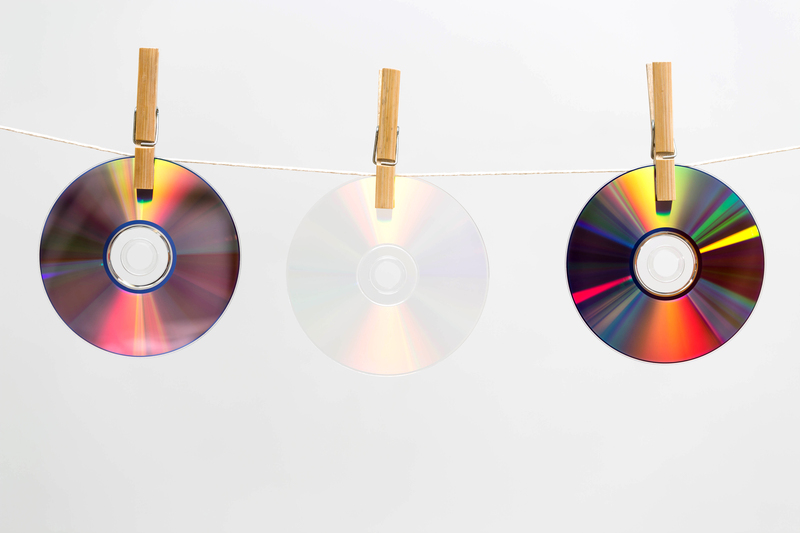Harmonize Your Space: De-cluttering's Stress Relief Secrets
Are you feeling overwhelmed in your living or working environment? If so, you are not alone. The reality is that cluttered spaces are linked to higher levels of stress and anxiety. However, harmonizing your environment through de-cluttering can work wonders for your mental health and overall well-being. In this comprehensive and SEO-optimized guide, we'll uncover the secrets of de-cluttering for stress relief, the psychological benefits, actionable steps, and expert tips that will help you transform your space--and your mind.
Understanding the Connection: Clutter and Stress
The physical spaces we inhabit significantly impact our mood, concentration, and productivity. Multiple research studies have established that a disorganized environment can increase cortisol levels, which is the hormone responsible for stress. When your space is cluttered, so is your mind.
- Visual Distraction: Clutter bombards your mind with excessive stimuli, making it difficult to focus.
- Emotional Weight: Untidiness can trigger feelings of guilt, anxiety, and embarrassment.
- Lack of Control: Cluttered environments can give you a sense of helplessness and being out of control.
De-cluttering, therefore, is more than just a physical act--it's a powerful form of self-care that can foster emotional healing and tranquility.

Why a Harmonized Space Refreshes Your Mind
Creating a harmonized space isn't merely about aesthetics; it's about cultivating an environment where you feel safe, productive, and at peace. Here's what happens when you de-clutter:
- Reduces Anxiety: Fewer distractions support clearer thinking and relaxation.
- Boosts Productivity: A tidy area lets you locate items quickly, promoting efficiency.
- Enhances Creativity: Open spaces can spark innovation and fresh ideas.
Embracing a de-cluttered lifestyle enables you to focus on what truly matters, making it a foundational pillar of modern self-care.
The Science Behind De-cluttering and Stress Reduction
According to the Person-Environment Fit Theory, we flourish in environments that are tailored to our needs and preferences. A harmonious, well-organized space supports positive changes in our mental state. Notably:
- A UCLA study found that women who described their homes as "cluttered" had increased levels of the stress hormone cortisol.
- Marie Kondo's methods popularized the idea that letting go of items can promote a sense of accomplishment and emotional healing.
This evidence supports the idea that de-cluttering is an effective stress-relief technique. When you create a serene environment, you grant yourself the gift of tranquility.
What is De-cluttering?
At its core, de-cluttering involves systematically evaluating your belongings and removing items that no longer serve a functional or emotional purpose. Decluttering stress is relieved through intentional organization, making your space both beautiful and efficient.
The Major Stress Relief Secrets of De-cluttering
1. Establish Clear Zones
Assign every object a specific home. This eliminates decision fatigue, allowing you to spend less time searching for things and more time relaxing. As you de-clutter, ask yourself:
- Does this item contribute to the function of this space?
- Does it bring me joy or add to my daily routine?
2. Practice the "One In, One Out" Rule
To maintain a harmonized environment, commit to removing one item for every new item brought in. This prevents accumulation and helps keep your space clutter-free.
3. Use the Four-Box Method
Sort items into four categories: Keep, Donate, Recycle, or Trash. This straightforward system eliminates indecision and supports mindful consumption.
4. Mindful De-cluttering Sessions
Designate specific times for de-cluttering--this could be 15 minutes daily or a longer session each weekend. Play calming music, light a candle, and make it an enjoyable self-care ritual.
5. Reframe Your Relationship with "Stuff"
Objects often carry emotional baggage. By thoughtfully releasing what you no longer need, you make room for positive energy and experiences. This is where de-cluttering's real stress relief secret lies: it's not about losing possessions, but about gaining a sense of freedom.
Step-by-Step Guide: How to De-clutter for Stress Relief
Ready to start harmonizing your space? Follow this strategic, actionable guide:
- Assess Your Space: Take a "before" photo to get a sense of the areas that disrupt your peace the most. List these hotspots.
- Create a Vision: Picture how you want your space to look and feel. Inspiration boards on Pinterest can help.
- Start Small: Tackle one drawer, countertop, or shelf at a time to avoid overwhelm.
- Use Sorting Bins: Set up bins for items to keep, donate, recycle, or discard.
- Organize What Remains: Use containers, drawer organizers, and labels to give every item a designated spot.
- Maintain Regularly: Set aside a few minutes each week for touch-up decluttering to keep your space stress-free.
Rooms That Benefit Most from De-cluttering
Your Bedroom: A Sanctuary for Rest
Clutter in the bedroom can disrupt your sleep and raise anxiety levels. Keep surfaces clear and store away items that don't contribute to relaxation. Wash bedding regularly and invest in soft lighting to create a restful haven.
Your Workspace: Boosting Focus and Creativity
Piles of paper, tangled cables, and miscellaneous items stifle productivity. Digital clutter, like redundant files and unorganized desktops, can be just as overwhelming. De-cluttering your workspace sharpens your focus and lifts mental fog.
Your Kitchen: Supporting Healthy Choices
A de-cluttered kitchen makes it easier to prepare nourishing meals and keeps unhealthy temptations at bay. Keep countertops clear, organize your pantry, and only keep appliances you use frequently.
Your Entryway: Creating First Impressions
Your home's entrance sets the tone for your return each day. Store shoes, coats, and bags neatly. Add hooks or baskets to organize keys and mail, making your arrival and departure stress-free.
Overcoming Emotional Barriers to De-cluttering
Letting go of possessions isn't always easy. Many of us cling to items out of guilt, sentimentality, or fear of lack. Here are some tips to make the process gentler:
- Start with Non-Sentimental Items: Get momentum by tackling objects with no emotional attachment.
- Ask the "Joy Question": If an item doesn't bring you joy or serve a vital role, consider releasing it.
- Remember Your Goals: Stay focused on the peace and relief you'll feel once your space is harmonized.
- Donate to a Cause: Knowing your items will help others can ease the letting-go process.
Tips for Maintaining a De-cluttered and Stress-Free Environment
The key to a harmonious, clutter-free space is mindful maintenance. Consider these strategies:
- Daily Reset: Take 10 minutes each evening to return items to their place.
- Seasonal Purges: Review wardrobes, bookshelves, and storage quarterly to stay on top of accumulating clutter.
- Mindful Shopping: Before buying, ask, "Do I need this, or do I love this?"
- Functional Storage: Invest in practical organizing solutions that make it easy to maintain tidiness.
- Enlist Help: Involve roommates or family in keeping shared spaces harmonious.
De-cluttering for Stress Relief: Common Mistakes to Avoid
Even the best intentions can be derailed by common pitfalls. Watch out for:
- Trying to Do It All at Once: Pacing yourself prevents burnout and keeps the process fulfilling.
- Getting Stuck on Sentiment: If you're unsure about a sentimental item, box it up and revisit in a few months.
- Lack of a System: Without sorting categories, you may end up simply moving clutter around.
- Not Creating Habits: Daily routines are key for permanent results.
The Holistic Benefits of a De-cluttered Home
A harmonized, clutter-free space delivers numerous proven benefits:
- Mental Clarity: Less mess equals fewer distractions and clearer thinking.
- Emotional Balance: Experience reduced anxiety as your surroundings become serene and organized.
- Physical Health: Fewer objects mean easier cleaning, resulting in a healthier environment.
- Financial Savings: By knowing what you own you'll avoid unnecessary repeat purchases.
- Increased Productivity: An organized space sets the stage for getting things done.
Expert Hacks: De-clutter and De-Stress Like a Pro
Take your de-cluttering and stress-relief journey to the next level with these expert hacks:
- Adopt Minimalism: Keep only what serves you, brings you happiness, or is truly needed.
- Create Capsule Collections: Simplify wardrobes, toiletries, and office supplies to essential, high-quality items.
- Digitally De-clutter: Regularly delete old emails, organize digital files, and streamline your device's apps and photos.
- Declutter with a Friend: A supportive companion can keep you accountable and make the process fun.
- Celebrate Small Wins: Acknowledge each completed task as progress toward your peaceful sanctuary.

Frequently Asked Questions
How often should I de-clutter?
Ideally, schedule small, regular sessions--such as weekly or monthly touch-ups--rather than waiting until things pile up.
What should I do with items I no longer need?
Donate, recycle, or sell usable items. Only discard what cannot be reused.
How do I motivate myself to start de-cluttering?
Set a timer, play energizing music, or recruit a friend. Start with an easy-to-tackle area to build momentum.
Can de-cluttering really improve mental health?
Absolutely. Studies have shown a strong link between de-cluttered spaces and reduced stress, anxiety, and depression.
Conclusion: Embrace the De-cluttering Stress Relief Revolution
De-cluttering is about far more than tidying up--it's a transformative act of self-care that nurtures your mind, body, and spirit. By harmonizing your surroundings, you're investing in your health, happiness, and quality of life. These secrets of stress relief through de-cluttering are your toolkit for lasting calm and clarity.
Are you ready to experience true tranquility? Begin your de-cluttering journey today--and harmonize your space for a stress-free tomorrow.
```